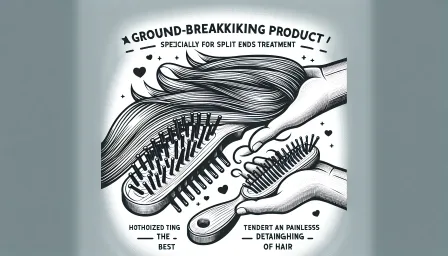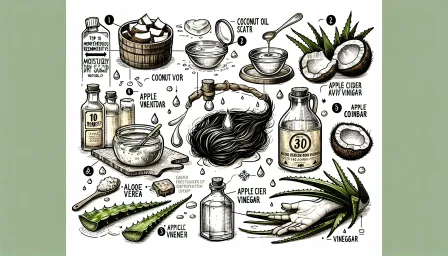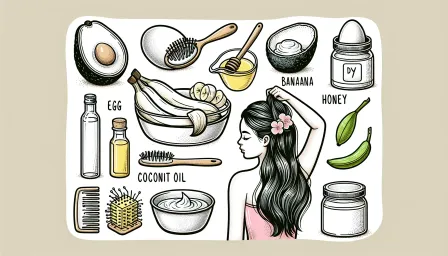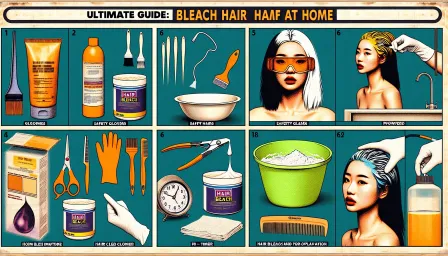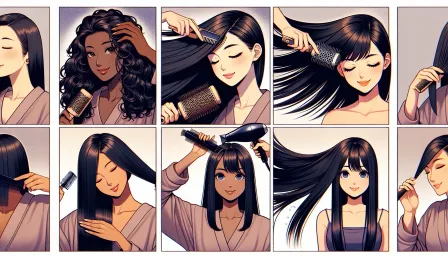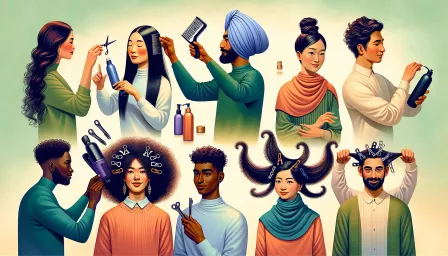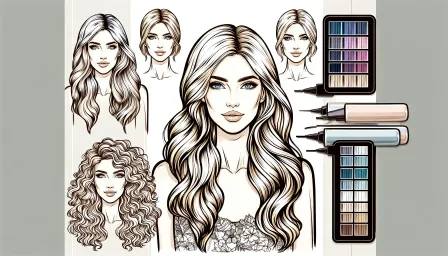Effective Hair Loss Solutions for Baldness: Regain Your Confidence

Discover effective hair loss solutions for baldness and regain your confidence. Explore well-researched treatments and products to combat hair loss.
Hair loss is a common issue that affects millions of individuals worldwide. Whether you're experiencing gradual thinning or a sudden onset of baldness, the emotional toll can be significant. In this article, we explore effective hair loss solutions for baldness, offering you well-researched options to regain your confidence and restore your hair.
Understanding the Causes of Hair Loss
Before delving into specific hair loss solutions for baldness, it’s important to understand the root causes. Various factors contribute to hair loss, including:
- Genetics: Hereditary factors play a significant role, often referred to as androgenetic alopecia.
- Hormonal Changes: Conditions like pregnancy, menopause, and thyroid issues can lead to hair loss.
- Medical Conditions: Diseases such as alopecia areata and scalp infections can cause baldness.
- Medications: Certain drugs used for cancer, arthritis, depression, and heart problems can prompt hair loss.
- Physical or Emotional Stress: Significant stress can trigger temporary hair shedding.
- Nutritional Deficiencies: Lack of essential nutrients like iron, protein, and vitamins can affect hair health.
Surgical Treatments for Hair Loss
Hair Transplant Surgery
Hair transplant surgery is a popular solution for permanent baldness. The process involves relocating hair follicles from a part of the body with healthy hair growth (donor site) to the bald areas (recipient site).
- Follicular Unit Transplantation (FUT): This method involves removing a strip of scalp from the donor site and dissecting it into individual follicular units for transplantation.
- Follicular Unit Extraction (FUE): This technique involves extracting individual hair follicles directly from the donor site and implanting them in the bald areas.
Scalp Reduction
Scalp reduction surgery involves removing parts of the bald scalp and stretching the area with hair to cover the bald spot. This solution is less common today due to advancements in hair transplantation methods.
Non-Surgical Treatments
Medications
Several FDA-approved medications are available to treat hair loss:
- Minoxidil (Rogaine): An over-the-counter topical solution that promotes hair growth and prevents further loss. It’s suitable for both men and women.
- Finasteride (Propecia): A prescription oral medication for men that reduces hair loss by blocking the hormone responsible for hair follicle shrinkage.
Laser Therapy
Low-Level Laser Therapy (LLLT) uses laser devices to enhance hair growth by stimulating hair follicles. These devices are available for home use or through professional treatments.
Alternative and Holistic Approaches
Diet and Nutrition
Maintaining a balanced diet rich in essential nutrients can significantly impact hair health. Ensure you’re consuming adequate amounts of:
- Protein: Hair is primarily made of protein, so a deficiency can lead to hair thinning.
- Iron: Iron deficiency is a common cause of hair loss, particularly in women.
- Vitamins: Vitamins A, C, D, E, and B-complex are crucial for hair growth and health.
Scalp Care
A healthy scalp is essential for healthy hair. Regularly massage your scalp to increase blood flow and ensure you're using gentle hair care products to avoid irritation and damage.
Hair Loss Prevention Tips
Preventing further hair loss is as crucial as treating current baldness. Here are some tips to help you maintain healthy hair:
- Avoid Heat and Chemical Treatments: Limit the use of hair dryers, flat irons, and chemical treatments, as they can weaken hair.
- Gentle Handling: Be gentle when washing and combing your hair to avoid breakage.
- Stress Management: Practice stress-reducing activities such as yoga, meditation, and exercise.
- Regular Health Checkups: Regular visits to a healthcare provider can help catch potential health issues early that might affect your hair.
Choosing the Right Solution for You
Deciding on the best hair loss solution for baldness requires careful consideration of various factors, including the cause and extent of hair loss, personal preferences, and budget. Consulting a healthcare provider or a dermatologist can provide personalized guidance.
Conclusion
Hair loss can impact your confidence and emotional well-being, but several effective solutions are available to address this challenge. From surgical treatments like hair transplants to non-surgical options such as medications and laser therapy, finding the right approach tailored to your needs is crucial. Take the first step towards regaining your confidence and exploring the best hair loss solutions for baldness today.




